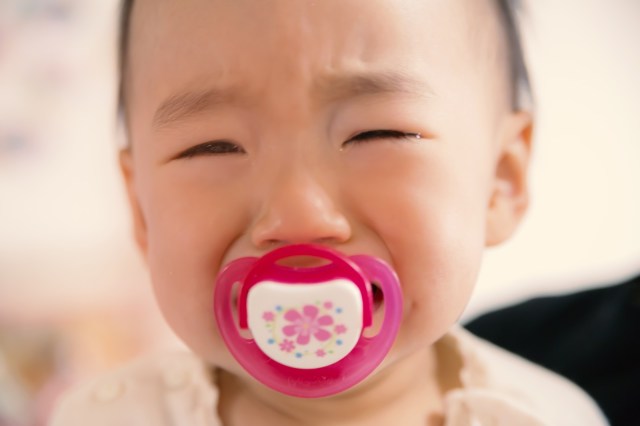
In light of an upcoming law, this survey sought adults’ attitudes towards broad topics related to disciplining children and child abuse.
In 2019, the number of births in Japan numbered fewer than 870,000–a staggering new low amidst decades of decline. The country’s declining birthrate continued to be a widely discussed societal issue this past year along with a series of highly visible child abuse incidents. In order to combat the latter, the Amended Child Abuse Prevention Act, originally proposed to the National Diet by the Ministry of Health, Labour and Welfare back in March, will prohibit corporal punishment when it takes effect this coming April. This month the Ministry also released guidelines in preparation for the impending legislation which define types of corporal punishment and strategies to combat child abuse.
In light of these new developments, Japanese travel provider Air Trip conducted an Internet survey in mid-December on topics related to the use of corporal punishment when disciplining children as well as child abuse, to gauge the general public’s reactions. There were 796 male and female respondents to the survey ranging in age from their 20s to 70s. Of these individuals, 456 have children of their own while 340 do not have any children. Let’s take a look at all six of the survey questions in greater detail and their corresponding results.
Survey Questions
Q1: [For those with children] Have you ever struck your child/been about to strike your child?
The survey results revealed that of the 456 respondents with children, 49.8 percent have struck a child before and 26.1 percent have been about to strike a child.
Q2: Do you believe that corporal punishment is necessary when disciplining children?
For a little context, we’ve seen examples of corporal punishment in Japan this year go viral online and be hotly debated, including this teacher punching a student and a mother smacking her child. The majority of survey takers replied that the use of corporal punishment was at least occasionally necessary when disciplining children. Among those with their own children, 70.6 percent said that it was necessary on a daily basis or occasionally, while 67.4 percent of those without their own children said the same.
Q3: The other day the Ministry of Health, Labour and Welfare released guidelines on corporal punishment. What do you think of them creating these guidelines?
Among all survey respondents, 50.8 percent had no opinion on the guidelines, 35.8 percent approved of them, and 13.4 percent opposed them.
Those who approved of the guidelines provided reasons such as “Adults these days are lacking in common sense so it’s necessary to spell things out for them” and “The definition of corporal punishment changes with the times so it’s best to be clear.” Those who opposed the guidelines provided reasons such as “Every household has a different style of parenting so it’s impossible to standardize guidelines in one manual” and “Even if guidelines are in place those who abuse children will continue to do it.”
Q4: Within the corporal punishment guidelines released the other day by the Ministry of Health, Labour and Welfare, out of the concrete examples given as corporal punishment, please choose the ones that you consider to be corporal punishment.
Quick note: this particular question seems to comprise a looser definition of corporal punishment including punishments that are not directly physical but may encompass emotional abuse as well.
Both of the groups with and without children selected “Saying ‘I wish you were never born’ as a joke” as the most agreed-upon example of abuse (69.7 percent with children and 80 percent without children). The other examples in decreasing order of general consensus included “Not giving them dinner for not doing their homework,” “criticizing or ignoring only one sibling,” “hitting them because they hit a friend,” “slapping their cheek because they wouldn’t listen after you warned them,” and “making them sit seiza-style for a long time because they pulled a prank.”
The example with the least amount of general consensus was “Spanking them for stealing someone else’s things” (38.4 percent with children and 40.3 percent without children). A very small number of respondents also did not classify any of the examples as corporal punishment.
Q5: What do you think about the punishments for child abuse by parents in present-day Japan?
Current law stipulates that offenders will serve under a year of penal servitude or pay under one million yen (US$9,100) in fines. Those parents whose abuse results in the death of a child will serve between 3-20 years. Presently, neither life imprisonment nor the death penalty are stipulated by law.
Out of the survey respondents, 66 percent thought these penalties are too lax, 22.7 percent did not know, 7.8 percent thought they are appropriate, and 3.5 percent thought they are too strict.
Q6: What needs to be done to stop child abuse by parents?
58.8 percent of all survey takers agreed that an expansion of parent consultation centers for parents was the most necessary countermeasure for change. The only three other responses that scored over 50 percent in general consensus included an expansion of temporary child protection shelters, proactive police intervention, and early intervention by child consultation centers.
The lowest-ranking response (besides “Other”) at 21.6 percent was a change in the duty and acquisition of paternity leave (i.e., a rethinking of traditional gender roles in Japan), which experts recently voiced as a prerequisite for raising the country’s declining birthrate.
All in all, it seems like Japanese parents still have yet to completely agree on what actually constitutes corporal punishment when disciplining their children. Perhaps an awareness campaign surrounding the government’s recently released guidelines will go a long way towards building a general consensus before the new law goes into effect early next year.
Source: @Press
Top image: Pakutaso
Insert images: Pakutaso (1, 2)
● Want to hear about SoraNews24’s latest articles as soon as they’re published? Follow us on Facebook and Twitter!



 Sending naughty kids to bed without dinner may soon be illegal in Japan
Sending naughty kids to bed without dinner may soon be illegal in Japan Japan’s prime minister wants to make it illegal for parents to hit kids when disciplining them
Japan’s prime minister wants to make it illegal for parents to hit kids when disciplining them Mother smacks child for riding bike in front of oncoming car, debate ensues【Video】
Mother smacks child for riding bike in front of oncoming car, debate ensues【Video】 Tokyo likely to reduce age limit on kids in opposite-sex public baths, report says
Tokyo likely to reduce age limit on kids in opposite-sex public baths, report says Nintendo takes steps to protect staff from growing problem of customer harassment
Nintendo takes steps to protect staff from growing problem of customer harassment Japan’s new difficult-to-drink-from beer glass protects your liver, but it’s a brutal experience
Japan’s new difficult-to-drink-from beer glass protects your liver, but it’s a brutal experience How to order snacks on a Shinkansen bullet train in Japan
How to order snacks on a Shinkansen bullet train in Japan New Pokémon ice cream, dessert drinks, and cool merch coming to Baskin-Robbins Japan【Pics】
New Pokémon ice cream, dessert drinks, and cool merch coming to Baskin-Robbins Japan【Pics】 Demon Slayer: Kimetsu no Yaiba gets new roller coaster attractions and food at Universal Studios Japan
Demon Slayer: Kimetsu no Yaiba gets new roller coaster attractions and food at Universal Studios Japan Caffeinated ramen for gamers that you can eat with one hand going on sale in Japan
Caffeinated ramen for gamers that you can eat with one hand going on sale in Japan Burger King Japan suddenly adds Dr. Pepper and Dr. Pepper floats to its menu nationwide
Burger King Japan suddenly adds Dr. Pepper and Dr. Pepper floats to its menu nationwide “The most Delicious Cup Noodle in history” – Japan’s French Cup Noodle wins our heart【Taste test】
“The most Delicious Cup Noodle in history” – Japan’s French Cup Noodle wins our heart【Taste test】 New samurai glasses are Japan’s latest weird must-have souvenir
New samurai glasses are Japan’s latest weird must-have souvenir Doraemon found buried at sea as scene from 1993 anime becomes real life【Photos】
Doraemon found buried at sea as scene from 1993 anime becomes real life【Photos】 Hello, cosmetics! Clinique teams up with Hello Kitty this summer for first-time collaboration
Hello, cosmetics! Clinique teams up with Hello Kitty this summer for first-time collaboration Nintendo history you can feel – Super NES, N64, and GameCube controllers become capsule toys
Nintendo history you can feel – Super NES, N64, and GameCube controllers become capsule toys Starbucks releases a cute Frappuccino and Unicorn Cake…but not in Japan
Starbucks releases a cute Frappuccino and Unicorn Cake…but not in Japan Kyoto Tower mascot termination reveals dark side behind cute Japanese characters
Kyoto Tower mascot termination reveals dark side behind cute Japanese characters McDonald’s Japan’s Soft Twist Tower: A phantom ice cream only sold at select branches
McDonald’s Japan’s Soft Twist Tower: A phantom ice cream only sold at select branches Yabai Ramen: What makes this Japanese ramen so dangerous?
Yabai Ramen: What makes this Japanese ramen so dangerous? Finally! Nintendo Japan expands Switch 8-bit controller sales to everybody, Online member or not
Finally! Nintendo Japan expands Switch 8-bit controller sales to everybody, Online member or not Japanese government wants to build luxury resorts in all national parks for foreign tourists
Japanese government wants to build luxury resorts in all national parks for foreign tourists To combat declining birth rate, Japan to begin offering “Breeding Visas” to foreigners
To combat declining birth rate, Japan to begin offering “Breeding Visas” to foreigners 10 things you should buy at 7-Eleven in Japan
10 things you should buy at 7-Eleven in Japan Studio Ghibli releases anime heroine cosplay dresses that are super comfy to wear
Studio Ghibli releases anime heroine cosplay dresses that are super comfy to wear Woman charged for driving suitcase without a license in Osaka
Woman charged for driving suitcase without a license in Osaka Studio Ghibli unveils My Neighbour Totoro miniature house model
Studio Ghibli unveils My Neighbour Totoro miniature house model Kyoto experiencing problems with foreign tourists not paying for bus fares, but not on purpose
Kyoto experiencing problems with foreign tourists not paying for bus fares, but not on purpose Fighting mild hunger with a Japanese soda that turns into jelly in the stomach【Taste test】
Fighting mild hunger with a Japanese soda that turns into jelly in the stomach【Taste test】 Studio Ghibli’s Howl’s Moving Castle tapestry unveiled in Japan for first time
Studio Ghibli’s Howl’s Moving Castle tapestry unveiled in Japan for first time McDonald’s new Happy Meals offer up cute and practical Sanrio lifestyle goods
McDonald’s new Happy Meals offer up cute and practical Sanrio lifestyle goods Sales of Japan’s most convenient train ticket/shopping payment cards suspended indefinitely
Sales of Japan’s most convenient train ticket/shopping payment cards suspended indefinitely Sold-out Studio Ghibli desktop humidifiers are back so Totoro can help you through the dry season
Sold-out Studio Ghibli desktop humidifiers are back so Totoro can help you through the dry season Japanese government to make first change to romanization spelling rules since the 1950s
Japanese government to make first change to romanization spelling rules since the 1950s Foreigner’s request for help in Tokyo makes us sad for the state of society
Foreigner’s request for help in Tokyo makes us sad for the state of society Ghibli founders Toshio Suzuki and Hayao Miyazaki contribute to Japanese whisky Totoro label design
Ghibli founders Toshio Suzuki and Hayao Miyazaki contribute to Japanese whisky Totoro label design Tokyo’s most famous Starbucks is closed
Tokyo’s most famous Starbucks is closed Princesses, fruits, and blacksmiths: Study reveals the 30 most unusual family names in Japan
Princesses, fruits, and blacksmiths: Study reveals the 30 most unusual family names in Japan Survey by Japanese ministry reveals high rates of “maternity harassment” in workplace
Survey by Japanese ministry reveals high rates of “maternity harassment” in workplace Government survey finds teleworking at least once per week raises Japanese worker happiness level
Government survey finds teleworking at least once per week raises Japanese worker happiness level More than one in three Japanese working women in survey would rather be housewives
More than one in three Japanese working women in survey would rather be housewives Chinese parenting posters from 1952 gave insightful advice that still makes plenty of sense today
Chinese parenting posters from 1952 gave insightful advice that still makes plenty of sense today 5 powerful reasons to be a woman in Japan 【Women in Japan Series】
5 powerful reasons to be a woman in Japan 【Women in Japan Series】 Rate of young Japanese people who want to get married someday drops to lowest ever in survey
Rate of young Japanese people who want to get married someday drops to lowest ever in survey Flush with New Year’s present cash, Japanese kids can now look forward to…saving it
Flush with New Year’s present cash, Japanese kids can now look forward to…saving it Overworked Japanese employees mourn unused paid holidays at new Buddhist memorial service
Overworked Japanese employees mourn unused paid holidays at new Buddhist memorial service 70% of South Koreans will donate to fund for unity with North, want US and China to cough up too
70% of South Koreans will donate to fund for unity with North, want US and China to cough up too Japan’s legal age of adulthood dropping by two years, but do teens understand what that means?
Japan’s legal age of adulthood dropping by two years, but do teens understand what that means? Japanese government wants to give people an extra 80,000 yen to have babies, but will it work?
Japanese government wants to give people an extra 80,000 yen to have babies, but will it work? Tokyo apologizes for accidentally promoting child abuse
Tokyo apologizes for accidentally promoting child abuse Nearly five percent of Japanese are addicted to gambling – even though it’s still “illegal”
Nearly five percent of Japanese are addicted to gambling – even though it’s still “illegal” Mask rules in Japan have changed…so are people still wearing them?
Mask rules in Japan have changed…so are people still wearing them? What’s the best way to close the gender gap in Japan? Japanese women weigh in
What’s the best way to close the gender gap in Japan? Japanese women weigh in Survey says more than 70 percent of Japanese people think gender inequality exists in Japan
Survey says more than 70 percent of Japanese people think gender inequality exists in Japan
Leave a Reply